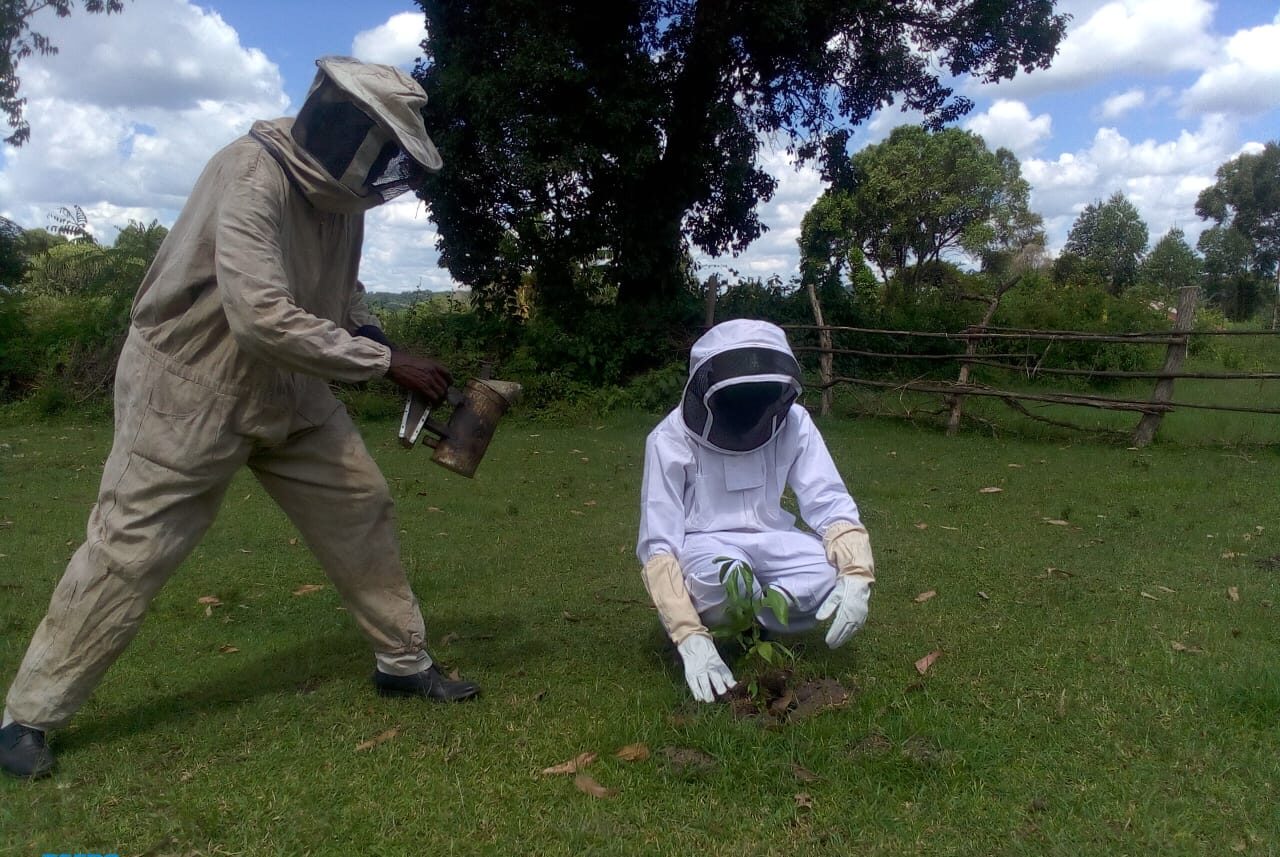Environment Care and Conservation

Why are bees good pollinators?
Bees make excellent pollinators because most of their life is spent collecting pollen, a source of protein that they feed to their developing offspring. When a bee lands on a flower, the hairs all over the bees’ body attract pollen grains through electrostatic forces. Stiff hairs on their legs enable them to groom the pollen into specialized brushes or pockets on their legs or body, and then carry it back to their nest. Individual bees tend to focus on one kind of flower at a time, which means it is more likely that pollen from one flower will be transferred to another flower of the same species by a particular bee. Many plants require this kind of pollen distribution, known as cross-pollination, in order to produce viable seeds. The business of collecting pollen requires a lot of energy, and so many flowers attract and also reward bees with nectar, a mixture of water and sugars produced by plants.
GOOD BEEKEEPING PRACTICES
Good beekeeping practices are those integrative activities that beekeepers apply to obtain optimal health for humans, honeybees and the environment. Therefore, the implemen- tation of GBPs would have a positive effect on colony health and society, and at the same time could favour high produc- tion standards. Such practices are general measures valid for beekeeping activities and are globally accepted. They are not disease-specific and are meant to be implemented by bee- keepers in primary production of hive products. They are a tool for beekeepers to successfully address the challenges they face in day-to-day apiary management.
For optimal production, every beekeeper should undertake training on good beekeeping practices for a healthier and more successful apiary. Attend training programmes on beekeeping and honeybee diseases to learn how to identify, prevent and control the disease.

